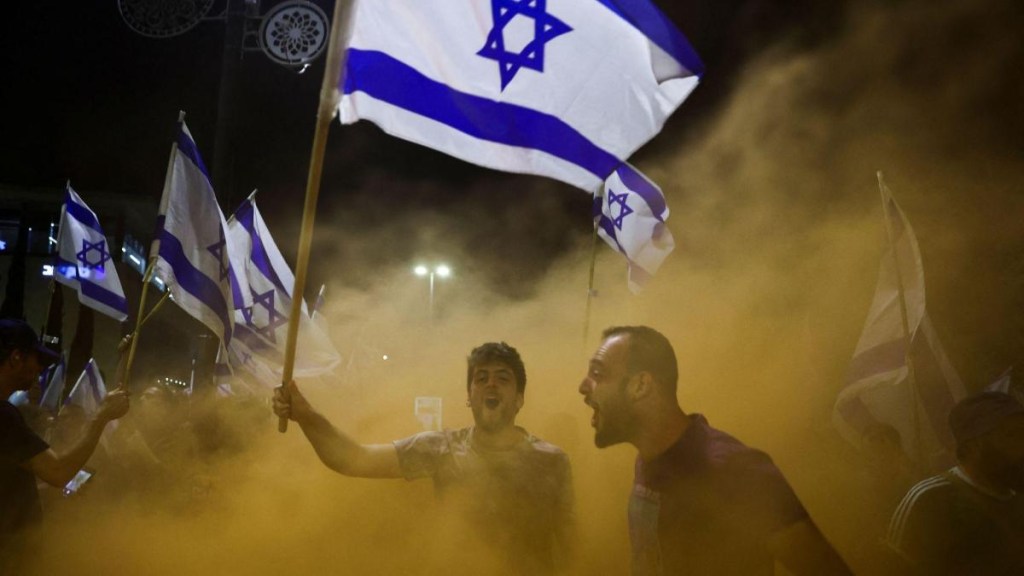Protests erupted across Israel on Tuesday as demonstrators took to the streets to voice their opposition to the government’s planned judicial overhaul. Highways leading to Jerusalem, Haifa, and Tel Aviv were blocked by protesters in a countrywide demonstration against proposed changes to the judiciary that have sharply divided the nation.
The protests came in the wake of Prime Minister Benjamin Netanyahu’s parliamentary coalition giving initial approval to a bill aimed at limiting the Supreme Court’s oversight powers. Despite widespread opposition, Netanyahu’s ultranationalist and ultra-Orthodox allies pressed forward with the controversial legislation, provoking months of sustained protests by opponents who argue that it poses a threat to democratic values.
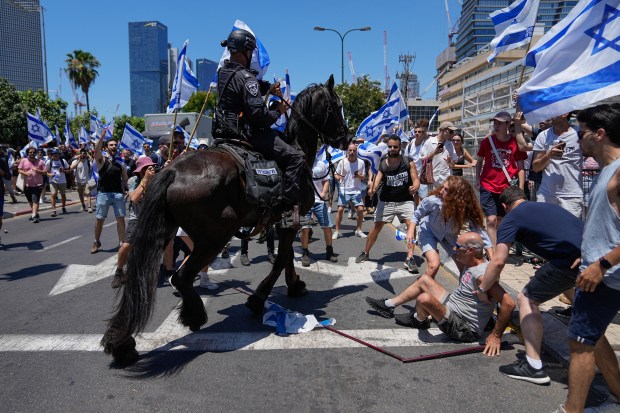
Mass demonstrations
Anti-overhaul activists called for nationwide mass demonstrations throughout the day, including protests at Israel’s main international airport, which had the potential to disrupt travel. In a significant show of dissent, 300 reservists from the military’s cyber unit signed a letter announcing their refusal to volunteer for service, citing the government’s determination to undermine the state and its democratic foundations.
Police used a water cannon to disperse protesters who blocked a major artery leading to Jerusalem, leading to the arrest of several individuals. Similar scenes unfolded in Modiin, where demonstrators obstructed a highway, and in Haifa, where a large banner proclaiming “Together we will be victorious” disrupted traffic along the beachfront.
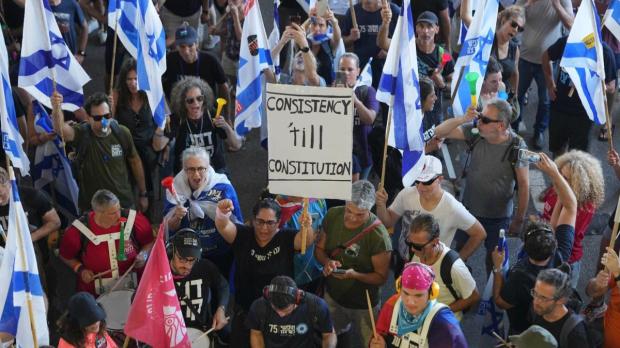
Forty-two individuals were arrested for public disturbance during the protests, but the widespread discontent has the potential to escalate further. Arnon Bar-David, the head of the country’s national labor union, the Histadrut, threatened a possible general strike that could paralyze the economy if the situation worsens. He called on Netanyahu to put an end to the chaos.
What is the matter?
Netanyahu’s allies have proposed a series of changes to the Israeli legal system with the aim of curbing what they perceive as excessive powers held by unelected judges. These changes include granting control over the appointment of judges to Netanyahu’s allies and giving parliament the authority to overturn court decisions.
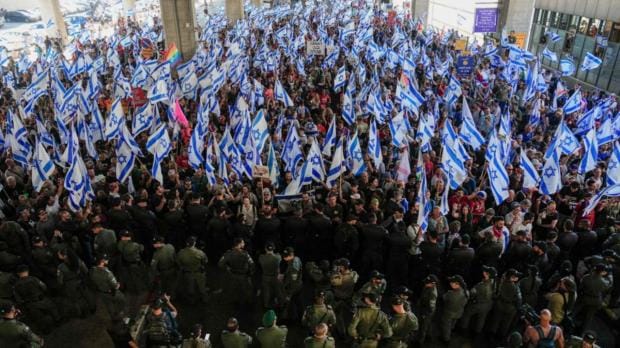
Critics of the judicial overhaul argue that it will upset the delicate balance of checks and balances in the country, concentrating power in the hands of Netanyahu and his allies. They also raise concerns about Netanyahu’s conflict of interest, as he is currently on trial for charges of corruption, which he vehemently denies.
Protesters from all walks of life
The protests have seen a diverse range of participants, including reserve military officers, business leaders, LGBTQ+ individuals, and members of other minority groups. This broad-based opposition reflects the deep concerns among various segments of Israeli society about the erosion of democratic principles and the concentration of power within the government.
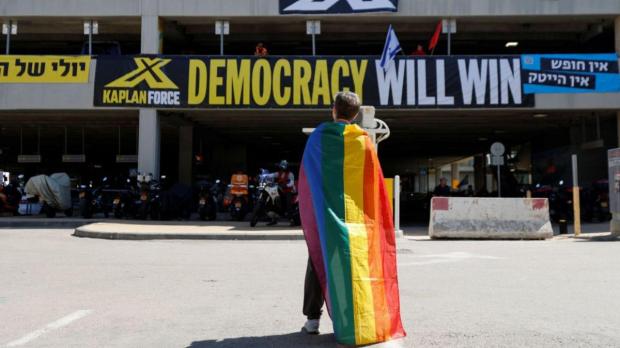
As the protests continue and tensions rise, it remains to be seen how the government will respond to the growing dissent. The outcome of this battle over the judiciary will have far-reaching implications for the future of Israel’s democratic institutions and the country’s political landscape.
(With inputs from agencies)

